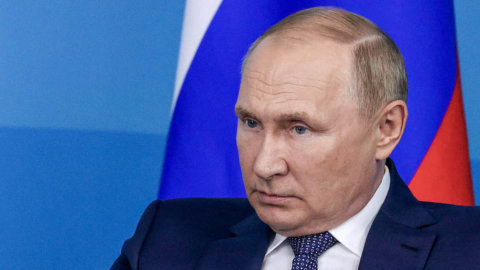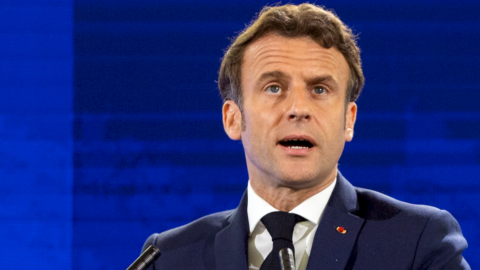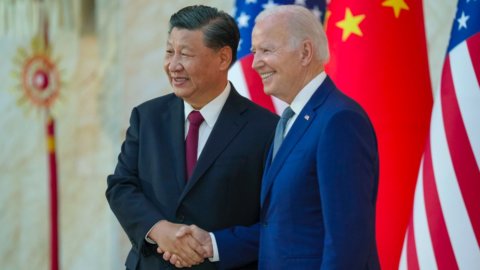The Northern Ireland peace process has undoubtedly been very successful, but there are obstacles in the way of stability, with Brexit on the horizon which could further complicate matters.
Despite the progress following the 1998 Good Friday Peace Accord (a reconciliation symbolized in 2011 by the handshake between Queen Elizabeth and Martin McGuinness, a former IRA fighter who later became Deputy Prime Minister in Belfast), the future of the small nation of the United Kingdom still looks hazy.
The lack of a government in Belfast is undoubtedly one of the main obstacles. The Good Friday Agreement provides for Northern Ireland to be governed by a devolved administration headed by a premier and deputy premier from each of the major unionist and nationalist parties. Although the sharing of power between those who want to keep Northern Ireland under the Union Jack and those who dream of reunification with Dublin at the center of the peace agreement, Belfast has not had an executive since January.
Is the violence coming back?
Negotiations between Sinn Féin (the largest nationalist party) and the Democratic Unionist Party (DUP, the largest unionist force) have repeatedly failed to form a coalition government, after the former reduced to one seat away from runners-up in the Northern Irish Parliament. The imposition of direct rule – whereby the British government would take control of matters usually devolved to the Northern Ireland executive – continues to loom. Direct rule would have harmful implications for the political representation of Northern Ireland: in fact, MPs elected by Sinn Féin traditionally do not occupy their seats in Westminster, refusing to swear allegiance to the Queen (an essential requirement for taking office), as act of protest against the British jurisdiction over Ulster.
Not even sectarian violence has ceased to exist in the Northern Irish state, as evidenced by the chronicles of recent months. In September, loyalist paramilitaries were accused of intimidating Catholic families from their homes in Belfast. In October, however, three families in Derry were evacuated as police defused two improvised explosive devices near their homes; and a few days later a homemade bomb was discovered in a residential area west of the capital, responsibility for which a new dissident republican group claimed responsibility.
In an article published a few months ago in the Guardian, Matthew Engel wrote that Ulster "has had two decades of what outsiders call peace". Not only in Northern Ireland, but also in Great Britain and the Republic of Ireland, the past tense is used to refer to the Northern Irish peace process. A language that risks undermining a peace-building process that is still ongoing.
The faults of the Good Friday Agreement
Unexpectedly, the path to peace seems to have been somewhat hampered by the very structure of the Good Friday Agreement. The accord has in fact institutionalized the division between nationalists and unionists both socially and politically. "Unionists and nationalists now work and live perhaps more separately than they did in the past," says Eoin O'Malley of Dublin City University. Though plans to remove them are now under discussion, the so-called "peace walls" that were first erected in 1969 to prevent violence continue to separate predominantly nationalist from predominantly unionist areas today.
Inter-communal trust, essential for peace, has suffered as a result of this division. A mistrust that contributed to the fall of the government last January, when the prime minister and leader of the Dup unionists Arlene Foster was implicated in a scandal over the incentive scheme for the use of renewable energy, which according to some critics would have benefited disproportionately the unionists. The distrust still lingers today, and – despite the March elections in Northern Ireland – continues to prevent negotiations between the Dup and Sinn Féin from producing a government.
Exit from the EU and return to the border
Brexit threatens to exacerbate this division within the Northern Irish population. Although Northern Ireland voted 56% to "Remain" in the referendum on the United Kingdom's permanence in the European Union, Belfast will have to leave the EU en bloc together with Great Britain. The 'hard' Brexit without an agreement, with the exit from the customs union, will require checkpoints on the border with the EU, that is, on the island, with the Republic of Ireland. An option that Northern Irish nationalists have already aligned themselves against.
A possible alternative to maintain the "invisible" border that currently exists between the two Irish political entities is the creation of a border between the EU and the United Kingdom in the Irish Sea (separating the island of Ireland and the Great Brittany): this would allow Northern Ireland to remain in the customs union with some kind of special status. However, unionists are decidedly opposed to a solution that ends up separating Ulster from the rest of the United Kingdom: the DUP - which today is indispensable support for Theresa May's majority in Westminster - has campaigned for Brexit and will oppose any division between Northern Ireland and Great Britain.
In London they would like to address the issue of the Irish border at a later stage, as part of the agreement with the EU on future trade relations; a position which the leaders of the 27 and Ireland itself do not agree on, which on the occasion of the European Council of 15 December which will have to evaluate the progress of the Brexit negotiations could get in the way and veto the continuation of the negotiations.
Since the day after the victory of the "Leave", parliamentarians, politicians and academics both in the United Kingdom and in the rest of Europe have been looking for "creative and flexible" solutions to completely avoid a physical border in the heart of the island of Ireland. However, if the UK leaves the customs union, there will be no other solution than to reinstate the border, be it on land or at sea. Wherever the boundary is placed, it will have serious and potentially peace-damaging repercussions in Northern Ireland.
For weeks there have been calls to involve an external mediator in the talks between Sinn Féin and the Dup. But while mediation has the potential to resolve short-term political deadlock by helping to form a government, a long-term strategy that builds trust and encourages reconciliation is essential to creating sustainable peace in Northern Ireland .





